When you need extra cash for an expense big or small, a personal loan is well worth considering. What exactly is a personal loan, and what effect can it have on your financial situation? This article covers the pros and cons of personal loans so you can make an educated decision about pursuing one.
What is a Personal Loan?
Personal loans represent funds borrowed from a financial institution or online lenders that individuals can use for just about anything outside of business purposes.
Each personal loan has a fixed interest rate with a set repayment schedule. Amounts can range anywhere from a few hundred to tens of thousands of dollars.
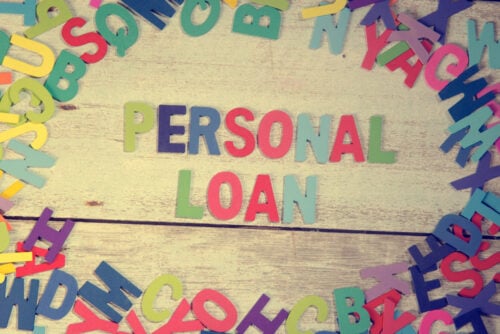
What are the Pros and Cons of Personal Loans?
There are many personal loan advantages to consider but also disadvantages to contend with. Let’s take a look at each.
Pros: Why Can These Loans be Helpful?
Get Money Fast
It typically doesn’t take long to request a personal loan, and a majority have fast approval times. Many lenders deposit funds directly into your bank account for quick access.
A Lump Sum
When taking out a personal loan, you’ll receive all the cash you’ve approved for at once. Whatever the loan amount, it becomes possible to make that large purchase or work on debt consolidation.
High Borrowing Limits
Personal loans typically cover a wide range when borrowing money. With a good credit score, it’s possible to request amounts up to $100,000 or more. Those with a poor credit report may have to settle for lesser limits.
Competitive Interest Rates
Depending on how much you need to borrow, your credit score, and the repayment terms you settle on, personal loans can see interest rates as low as 3%. While average interest rates are a bit higher, it’s still lower than interest from paying off credit card balances.
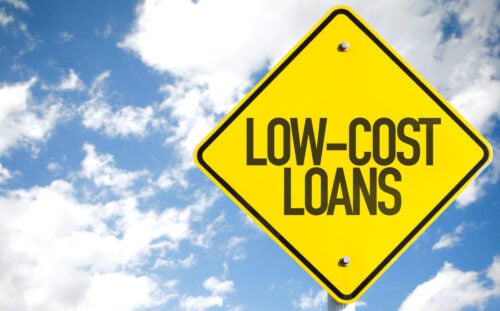
Build Credit
If you can keep up with monthly payments towards your outstanding balance, personal loans can positively affect your credit score. A favorable credit report can go a long way toward improving one’s overall financial situation.
Consolidate Debt
It can be challenging to keep track of auto loans, credit card debt, and money borrowed from other sources. Taking out a personal loan allows consolidating debt in one location, possibly even for lower interest rates.
FINANCIAL FLEXIBILITY
There are few restrictions on using personal loans. You can use the money to pay off medical bills, home renovations, or even to pay for a wedding. Some lenders may place stipulations on what you can use a personal loan for, so be sure to read the fine print before setting on a loan term.
No Collateral Needed
Most personal loans tend to be unsecured, meaning they don’t require collateral such as a car or home when requesting funds. Unsecured personal loans may cause higher monthly payments compared to a secured loan. On the bright side, you don’t risk losing your assets for late payments.
Predictable Monthly Payments
Lenders that offer personal loans require repayment over a fixed course of time. In most cases, monthly payments are fixed, so you’ll know exactly how much to pay. Similarly, monthly installments will fall on the same day to avoid surprises.
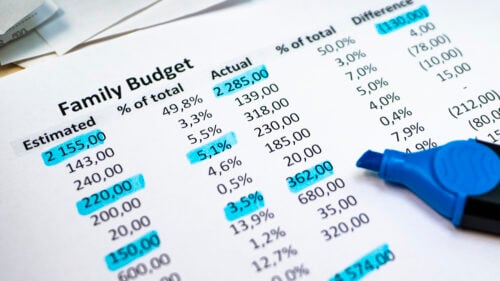
Cons: What to Look Out for With Personal Loans
Interest Rates Can Be High
Just as easily as interest rates can be low, they can also run very high. Those with a low credit score or a poor loan payment history will pay higher interest rates. This means each monthly payment may be more than some individuals can afford.
Penalties and Fees
If interest rates weren’t bad enough, lenders can charge origination fees to offset the application process cost. You may also experience prepayment penalties when trying to get ahead on your payments.
It’s worth reading every bit of text on the loan to ensure you don’t miss something that will cost you down the road.
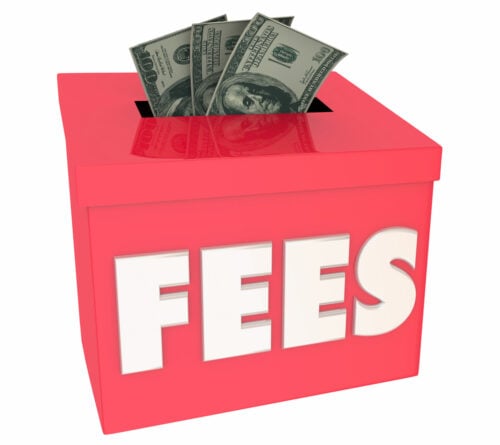
When you borrow money for a personal loan, many lenders charge fees for late payments or having insufficient funds in your bank account. Such fees can really hurt your bottom line when trying to get out of debt.
Personal Loans Are Still Debt
Speaking of debt, that is what personal loans are. In fact, using a personal loan to pay off credit card expenses may just allow the unsuspecting individual to max out the plastic once again. Overspenders can quickly find themselves in more debt than before instead of getting out from underneath it.
Might Affect Credit
Like any double-edged sword, personal loans can just as easily sink credit scores as they can improve them. Failing to make on-time payments reflects poorly on one’s credit history, potentially sending credit score numbers down the tubes.
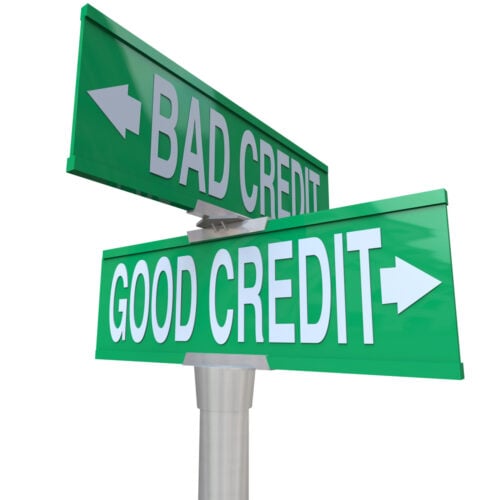
Lenders may request a hard credit check before approving a loan, especially if your credentials appear on shaky ground. Checking a score in this way can have credit consequences.
May Require collateral
Lenders may require a secured personal loan for those who can’t stand on credit score alone. In these instances, you’ll have to purchase some collateral to receive a loan. The lender may claim your collateral as a penalty if you fail to make on-time payments.
Should I Get a Personal Loan?
Personal loans can be a lifesaver in emergencies where you need money fast. They can also be a means to consolidate multiple debts in one location, often for a lower interest rate than each source.
Individuals with a high credit score can obtain the best interest rates, making repayment a less painful. It’s important to crunch the numbers and verify you have the means to pay back a personal loan before finding yourself lost down the rabbit hole.
Anyone with a history of overspending or those who can’t afford the monthly payment should avoid taking out a personal loan. If you don’t have an immediate need, saving money over time is more fruitful.
Final Thoughts: Pros and Cons of Personal Loans
A personal loan can be a huge blessing or a terrible curse, depending on how well you control your finances. At any point in life where you can avoid taking on additional debt, that’s usually the best route to go.
If you feel a personal loan is a way to go, consider the pros and cons of personal loans before making any kind of decision.


 Tags:
Tags:










